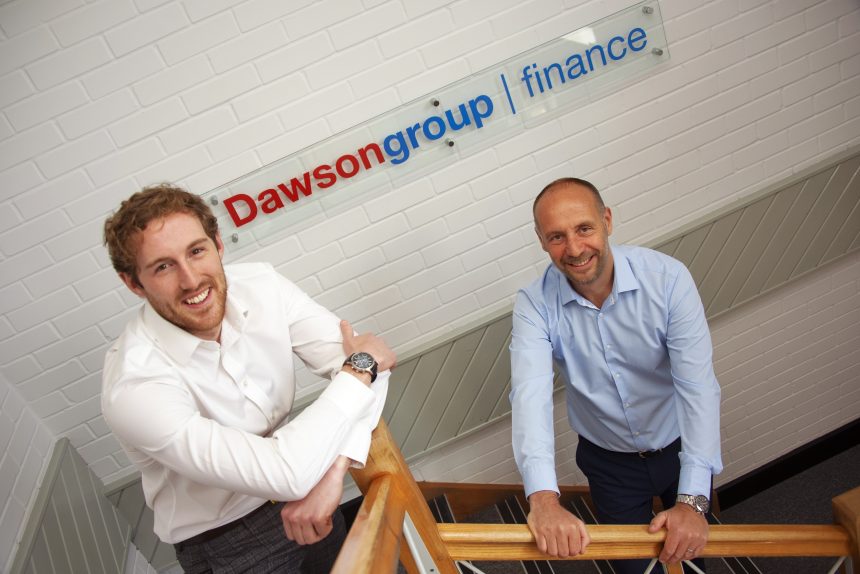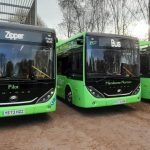routeone speaks to Matt Bull, Commercial Manager at Dawsongroup Finance, about how asset finance solutions could support the green ambitions of the coach and bus industry
The emergence of greener technologies and the push for net zero is beginning to reshape the coach and bus industry, which finds itself on the cusp of a major shift. But moving from traditional combustion engines vehicles to electric and hydrogen powered buses and coaches presents operators with substantial challenges, from high initial costs to uncertainty about the lifespan and infrastructure support for these new technologies.
How can they take that step while minimising the risks and keeping their outgoings affordable? And what is the role of the asset finance sector in helping coach and bus operators fulfil their green ambitions?
Time to go green?
There are many drivers for change, from the government’s £525m budget for assisting operators with upfront costs of buying zero-emission buses, to initiatives like Ultra Low Emissions Zones and Clean Air Zones.
But the new generation of green vehicles remain much more expensive than their traditional combustion engine counterparts – fuelling understandable hesitancy among operators.
Finding financial solutions to make them more affordable is a must, explains Matt Bull, Commercial Manager at Dawsongroup Finance. “The onus is on us as an industry to find asset finance solutions which allow businesses to run smoothly and access these new green technologies and continue to make money.
“We are working very hard to understand these new assets, to understand their life expectancy, their future values, to understand for how long the battery lasts and if it can be replaced for example.
“There is still a lot of uncertainty, but these technologies will be a requirement in the medium to long term in the UK, so we have got to find solutions to help businesses move forward.”
Building expertise
Overcoming the problems of novelty with no banked experience to draw on is the universal challenge with emerging green technologies. But being part of Dawsongroup PLC, a specialist group of companies providing asset rental and leasing services, including commercial vehicles, trailers, coaches and buses, puts Dawsongroup Finance in an advantageous position in this regard.
Adds Matt: “We’re drawing on the expertise of our sister company Dawsongroup Bus and Coach, which is working companies building and developing these vehicles. By drawing on their expertise, we’re developing our understanding of the key variables.
“We believe, for example, that by replacing the battery, these electric vehicles could have a longer life cycle than the traditional combustion engine vehicles. With that knowledge, we’re open to lengthening the term of financing, which allows us to offer lower monthly repayments to the customer making it more affordable.
“Another key lever is residual value, and we are trying to understand what the future value of these vehicles will be, working with manufacturers, suppliers and industry
experts to get comfortable with that. If we can work that out more accurately, rather than erring heavily on the side of caution, it again allows us to reduce costs for the customer.”
A consultative approach
Feeding into this process is Dawsongroup Finance’s Smarter Asset Strategy is an intelligent approach to procuring and funding assets so that they deliver their full value and usage, but in a way that minimises their cost, helping to protect business capital, vital for flexibility and agility.
“It’s not just about spreading the cost, it’s about understanding what works for a business – financing an asset only for the period during which it is useful and working hard to earn money, rather than the life of the vehicle, or opting for asset hire if that’s more appropriate,” explains Matt.
“For example, if a bus and coach operator is uncertain about moving to an electric fleet, we might go to our colleagues for rental and hire options – Dawsongroup Bus and Coach is investing in putting a huge number of EVs into the rental field. Operators needn’t dive into ownership; they might need a userships solution to dip a toe in the water.
“They might not want to change their whole fleet – maybe one or two, or half, or have a mix of ownership and usership. They can come to us for a conversation, to consult with us on what would be the best option for them.”
An appetite among lenders?
Another factor at play is the inclination of lenders to back deals with green credentials, as Matt explains: “We find some business funders want a lot more security and others are much more open to lending to fund green assets. Clearly, they don’t want to be the first person to get it wrong, but many see this is the way things are going and they want to arrive early. Some financial institutions are actively seeking to invest in environmentally conscious ventures which align with their values.
“At Dawsongroup Finance, where we are now lending our own money in 75% of our deals – we feel well positioned to take a leadership position here and come up with solutions businesses need.
“For example, when the board of a large community bus company we’ve worked with for many years started to look at electric vehicles this year, they came to us for a conversation and to seek our advice.
“We pulled on our resources and expertise from Dawsongroup Bus and Coach, and it ended up with the board deciding to get two brand new 32-seater electric vehicles, which we were able to finance over a longer term than we had done for them previously, because we felt this asset would have a longer life expectancy. For them it meant their monthly outgoing costs were similar to what they had been previously for their combustion engine assets.”
Going green is still an intimidating prospect, but with asset finance businesses like Dawsongroup working hard to get to grips with this new kind of asset, bus and coach operators might increasingly find the help and solutions they to manage that leap successfully.


























